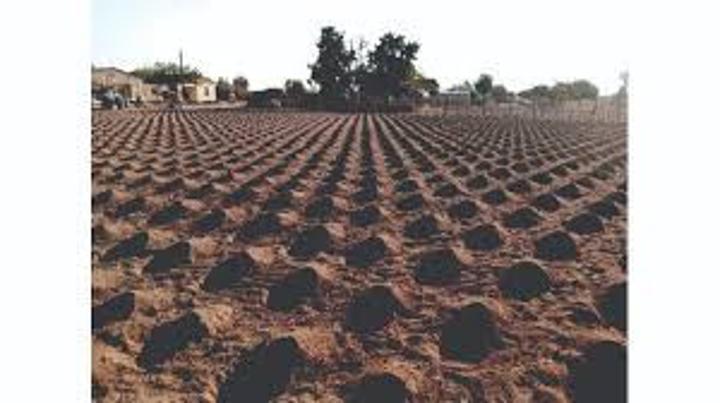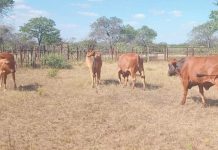Africa-Press – Zimbabwe. GOVERNMENT is working on combating corruption, which has rocked the supply of Pfumvunza/Intwasa farming inputs across the country amid reports that mobilisation of the inputs has started ahead of the forthcoming agricultural cropping season.
The programme, meant to boost agricultural production among farmers from rural and resettlement areas, has been dogged by allegations of corruption involving politicians and government officials.
The officials were accused of demanding US$5 per 50kg bag as transport fee from each farmer who received inputs in the just-ended summer cropping season.
However, responding to inquiries by journalists during post-Cabinet media briefing in Harare yesterday, Lands, Agriculture, Fisheries, Water and Rural Development minister Anxious Masuka said the government was prepared to curb corruption.
“We have started mobilising goods in terms of seed that is required. And it is moving now. We are also mobilising fertilisers so that we can grow, grow suppliers, grow fertilisers. You might be aware of the changes within the fertiliser industry,” he said.
“So, indeed, the government is very, very prepared. I am hoping that this year, they (farmers) will be able to receive inputs ahead of the rainy season.”
Masuka said that would extend to the cultural input scheme, where the government is defining the distribution mechanisms.
“And last Friday’s meeting, my interactive meeting with the ministers of State for Provincial Affairs and Devolution, we all were looking at the progress that we have made in terms of the mobilisation of new goods,” he said.
“But over and above that, we are going to overlay that with a card, which is being developed by AFC and we see its distribution progress in Kenya. We are using this to be able to eliminate or reduce corruption.
“So this is a card linked to a bank account, a card linked to your identity and a card with a facial recognition to enable us to be bona fide recipients of this innovation to eliminate corruption in that system. So, that’s what we’re doing for this season,” he said.
Masuka said government would provide periodical updates if any problems arose, as corruption was previously flagged to be affecting the farming sector.
“We are very prepared and we are going to provide periodic updates if we see any problems. We are also going to try around this year a new innovation to eliminate corruption in the distribution of goods.
“Now, we know that the ordinary distribution is through one test committee chaired by the chancellor, involved in all the agencies, involved in all the government apparatus within the world.”
In a bid to counterbalance the effects of climate change that have seen the country receiving normal to below normal rainfall, Masuka said the government is conducting investigations on new technologies of cloud seeding.
“The agronomic advice, based on that meteorological focus, is that we need to be able to do agro-ecological tailoring.
“But we do realise the importance of the work in many ways, starting with cloud seeding. Cloud seeding can determine the failure or success of a particular crop, especially in the case of maize.
“We want to investigate newer technologies for cloud seeding. And then we are investigating the actual operational modalities.”
Masuka said the government was sourcing elements for cloud seeding.
“In fact, I have recommended to Cabinet appropriately that we do realise the importance of cloud seeding in enhancing rainfall and ensuring that we get a successful season,” he said. “But this must be part of the collective measures that we implement for the summer season.”Meanwhile, Information, Publicity and Broadcasting Services minister Jenfan Muswere said a total of 860 804 tonnes of maize, soyabeans, sorghum, wheat and sunflower had been sold formally, with a large proportion being marketed informally.
“The formal grain and oilseed intake is 437% above the intake recorded at the same time last year. The Grain Marketing Board’s intake is 262,83% above last year’s intake.
“Government has instituted interim measures to assist millers in accessing grain across the country. The Strategic Grain Reserve currently holds 139 317 metric tonnes of grain in stock,” he said.
Muswere said the current monetary and fiscal environment, which had been characterised by exchange rate stability, steady pricing and increased availability of basic commodities was playing a critical role in preserving consumer purchasing power.
“Several formal retail operators reported increased sales volumes attributed to enhanced compliance, fair trading practices and improved market discipline fostered by operations conducted by the task force on business malpractices. Most retail outlets maintained adequate stocks of basic commodities during the review period,” he said.
For More News And Analysis About Zimbabwe Follow Africa-Press






